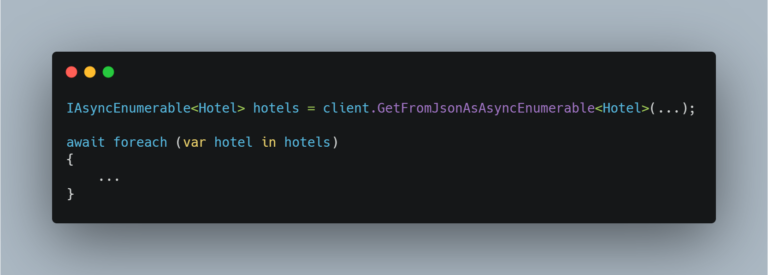HttpClient get JSON as AsyncEnumerable
A new extension method – GetFromJsonAsAsyncEnumerable<T> – has been added to the HttpClient part of .NET 8. This new mthod will take the response body JSON and deserialize it into an async enumerable operation. The complete signature of the extension method is as follows: Let’s take a look at how to use it. First thing…
